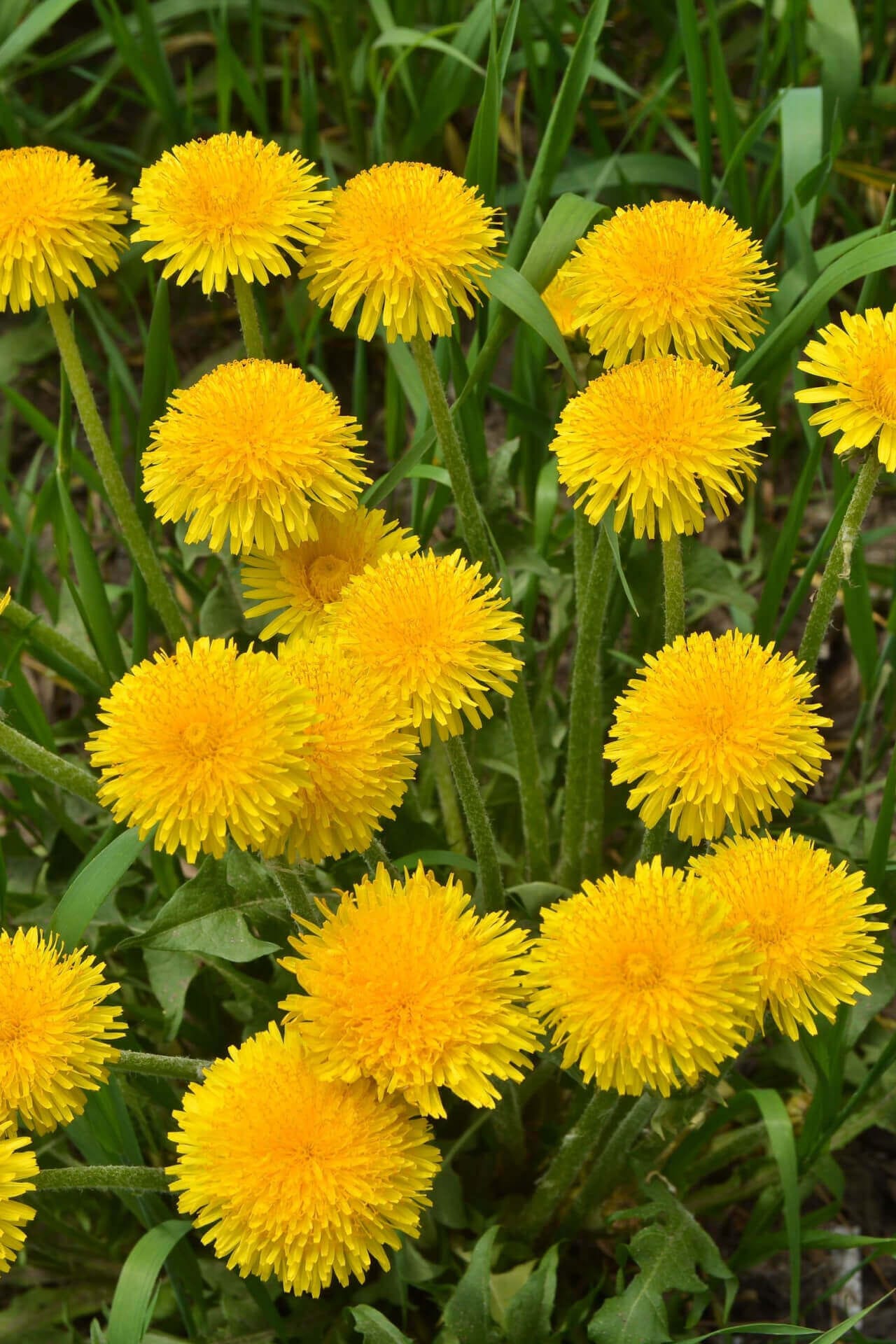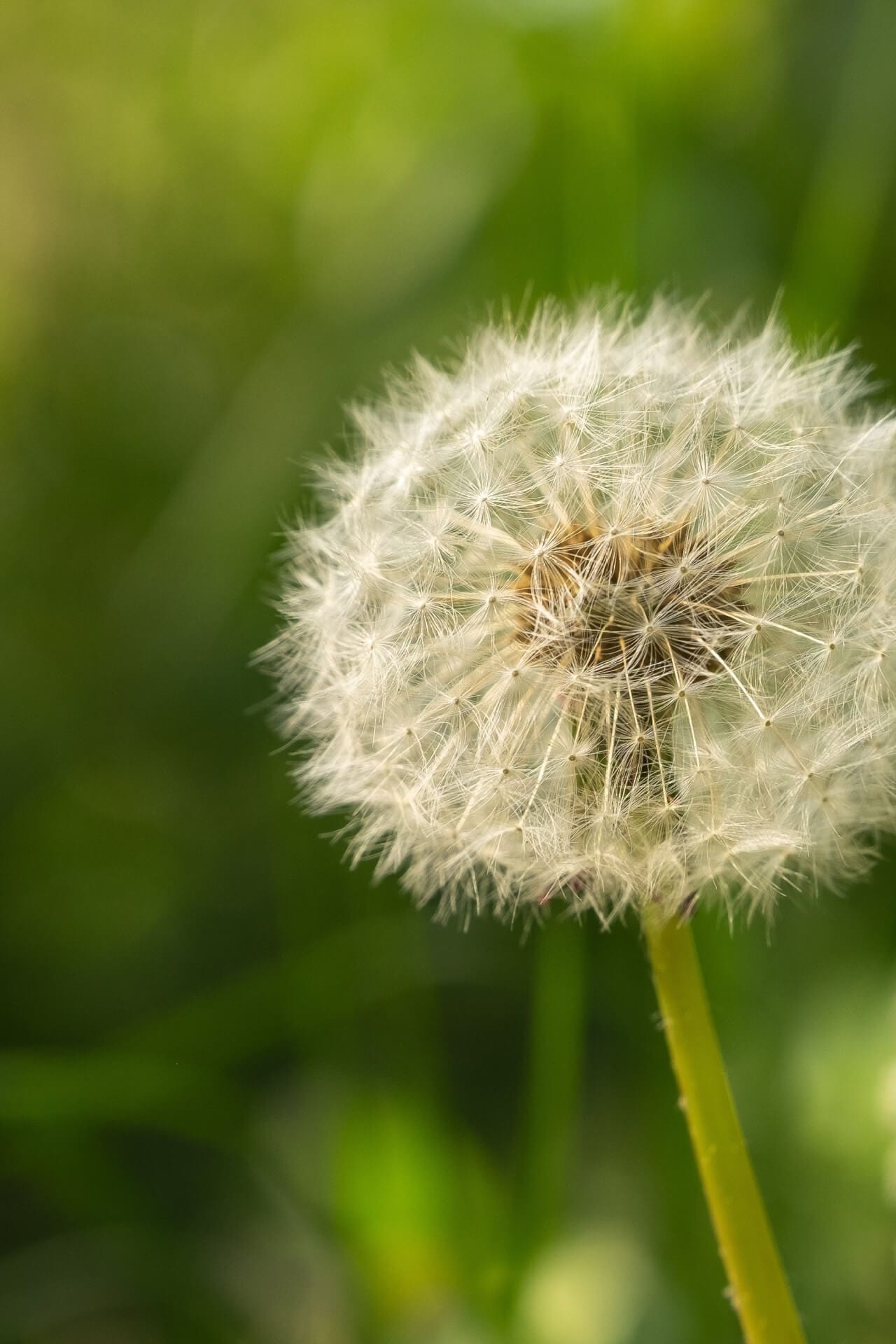Dandelion Plant
Dandelion Plant
| Order | Percentage Discount | ||
|---|---|---|---|
| 2-5 | 25% Off | ||
| 6-10 | 30% Off | ||
| 11-25 | 35% Off | ||
| 26-50 | 45% Off | ||
| 51+ | 65% Off | ||
Couldn't load pickup availability
5-7 Days
Under 12"
Full Sun
3-9
Flowering
Bare-root
Dandelion Plant - Taraxacum Officinale
The Dandelion Plant is a common weed in many parts of the world. It belongs to the family Asteraceae and is known for its yellow flower heads and puffy white seed heads, which children often blow on for fun.
They are hardy plants that can grow in various soil conditions. Their deep taproot allows them to access nutrients deep in the soil, making them drought-resistant. The leaves are profoundly toothed and form a rosette at the base of the plant.
Plant's Leaves
The leaves are often used in salads, as they have a slightly bitter taste similar to arugula. They are also a rich source of vitamins and minerals, including vitamins A, C, and K, as well as potassium, calcium, and iron. The leaves have also been used in traditional medicine for their diuretic properties, which can help flush excess bodily fluids.
Dandelion Plant's Uses
This plant has a long history of use in traditional medicine, with various parts used to treat multiple conditions, including liver, digestive, and skin issues. However, more research is needed to fully understand potential health benefits.
- The name comes from the French "dent de lion," which means "lion's tooth," a reference to the plant's toothed leaves.
- The flowers comprise many tiny flowers grouped into a single structure.
- They are often among the first flowers to bloom in the spring, providing an essential food source for bees and other pollinators.
- The wind disperses the plant's seeds; a single plant can produce up to 2,000 seeds in a single season.
- The leaves are edible and can be used in salads or cooked like spinach. They are rich in vitamins and minerals, including vitamins A, C, and K, as well as potassium and calcium.
- Traditional medicine has long used The plant's roots to treat various ailments, including liver, digestive, and skin conditions.
- The root can also be roasted, used as a coffee substitute, or brewed into tea.
- The flowers can be used to make wine, and the leaves can be used to create a tea that is said to have a calming effect.
- In folklore, they are associated with wishes and are often blown on by children to make a wish.
Still, if you want to reap the most benefits from a highly productive crop, you must know which growing conditions enable it to thrive.
Where To Plant
They thrive best in sunny, moist areas and can grow in almost any soil type. If you want to harvest the leaves for consumption, consider planting them in partial shade. It will decrease their bitter taste. Their flowers can be harvested whole. If the plant's deep taproot remains intact, the perennial flower will grow back for future harvests.
Its globular seedhead easily distinguishes them, but the golden yellow blooms are also worthy of mention. They are an attractive plant. Well-nurtured plants are quite pretty, and the flowers bloom twice a growing season, making them an essential part of a well-planned landscape.
Blooming
The flower's numerous golden petals create a tight ball of color that attracts bees. The plants are the first blooms to emerge in many climates after a long winter. Depending on their growing conditions, plants can be either 2 inches to just over 14 inches high.
Flower heads are roughly an inch in diameter. The flowers bloom in the early spring and mid to late fall. They close their heads during the middle of the day in the summer but can still be harvested at that time.
This Is How Your Plants Will Look upon Delivery
Bloom/Foliage Color
Yellow
Shipping date depends on the date displayed and chosen when you order from the product's page.
We only accept returns on plants verified dead. If you think your plants have died, we offer a 1 year warranty, please use use this File a Claim Link to verify dead plants and start with return warranty process.



They are coming in nicely after the “transplant shock” they go thru and now I’m looking forward to seeing them flower very soon!!!
These are precious flowers which have stayed in my lawn for over two years now. Nice accent to any perennial and shrubs around.
Thanks for the 5 stars Mattie, your review is a great way to let us know we’re on track for making our customers smile! We appreciate you taking the time to give your feedback and look forward to serving you again in the future.
I more than gladly bought this plant, and was more than happy with the way that it turned out. It was a wonderful memory to look at.
Thank you so much for your feedback, Maddie! It makes our day hearing about how much our customers love our plants and the great service they have received from our team. We have passed on your review to our team and look forward to you purchasing from us again.






